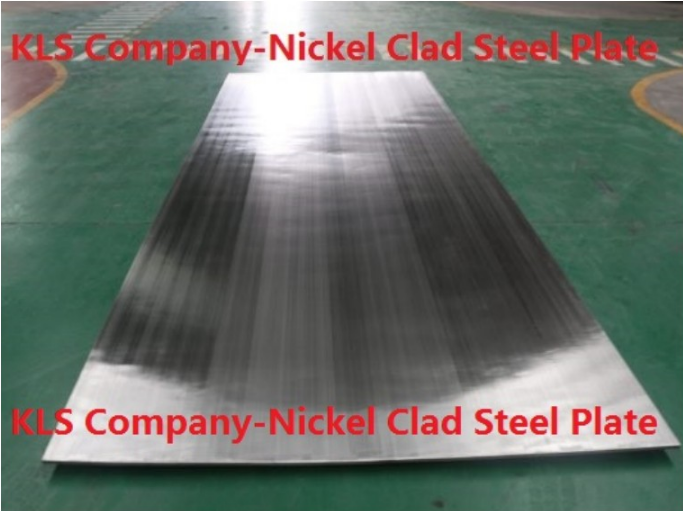Nickel clad steel plates are composite materials consisting of a layer of nickel bonded to a steel substrate. These plates offer a unique combination of the corrosion resistance of nickel and the strength and cost-effectiveness of steel. Understanding the corrosion resistance properties of nickel clad steel plates is crucial for evaluating their performance and suitability in various applications. In this article, we will discuss the factors that contribute to the corrosion resistance of nickel clad steel plates and their performance in different corrosive environments.

Nickel is known for its excellent corrosion resistance properties, making it a popular choice in many corrosion-prone industries. It exhibits resistance to various corrosive elements, including acids, alkalis, and salt solutions. Nickel forms a protective oxide layer on its surface when exposed to air, which acts as a barrier against further corrosion. This inherent corrosion resistance of nickel is one of the primary reasons why it is used as the cladding material in nickel clad steel plates.
The steel substrate in nickel clad steel plates is protected from corrosion by the nickel cladding layer. The nickel layer acts as a barrier, preventing corrosive substances from directly contacting the steel. This barrier effect significantly reduces the corrosion rate of the steel substrate, extending its service life in corrosive environments.
In certain environments where the steel substrate may be exposed to corrosive substances, the nickel cladding provides galvanic protection. Nickel is more noble than steel on the galvanic series, meaning it has a higher electrochemical potential. As a result, in the presence of an electrolyte, the nickel layer acts as a sacrificial anode, corroding preferentially instead of the steel substrate. This sacrificial protection mechanism helps to minimize the corrosion of the steel substrate and prolongs the overall durability of the clad plate.
Nickel clad steel plates exhibit uniform corrosion resistance across their entire surface. The uniformity of the nickel cladding ensures consistent protection to the underlying steel substrate, even in complex geometries or areas prone to crevices or local corrosion. This uniform corrosion resistance is especially advantageous in applications where the entire surface of the clad plate needs to be protected, such as in chemical storage tanks or pipelines.
Nickel clad steel plates also demonstrate excellent corrosion resistance at high temperatures. Nickel has superior resistance to oxidation and sulfidation, making it suitable for applications involving elevated temperatures and aggressive atmospheres. In high-temperature environments, the nickel cladding layer acts as a protective barrier, preventing the formation of oxides or sulfides on the steel substrate, which can lead to accelerated corrosion.
The corrosion resistance of nickel clad steel plates can vary depending on the specific corrosive environment. Nickel's resistance to acids, including sulfuric acid, hydrochloric acid, and nitric acid, makes nickel clad steel plates suitable for applications in chemical processing plants and the pharmaceutical industry. They also offer good resistance to alkalis, making them suitable for use in caustic environments. Additionally, nickel clad steel plates demonstrate excellent resistance to saltwater and seawater corrosion, making them ideal for marine applications.
It is important to note that the corrosion resistance of nickel clad steel plates can be influenced by various factors, such as the thickness and composition of the nickel cladding layer, the quality of the bonding between the nickel and steel, and the specific corrosive environment. Proper selection of the nickel cladding thickness and composition, as well as appropriate surface preparation and installation techniques, can further enhance the corrosion resistance and performance of nickel clad steel plates.
Nickel clad steel plates offer excellent corrosion resistance due to the inherent corrosion-resistant properties of nickel and the protective barrier it provides to the underlying steel substrate. These plates exhibit uniform corrosion resistance, provide galvanic protection, and perform well in high-temperature and specific corrosive environments. The corrosion resistance of nickel clad steel plates makes them a reliable choice for various applications in industries such as chemical processing, marine, and oil and gas, where corrosion protection and durability are paramount.
Please contact us for professional help if you need it.